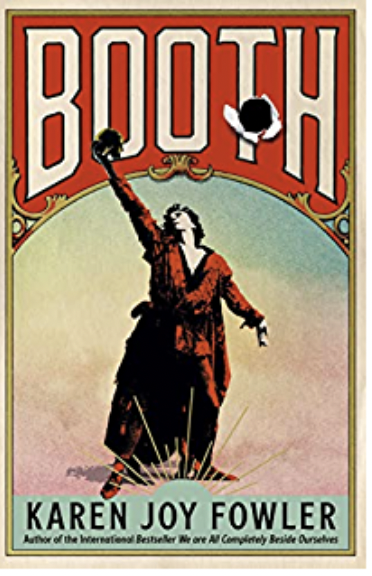
One injustice that shatters their Bond


Karen Joy Fowler is a Book-shortlisted, million-copy bestselling author of We Are All Completely Beside Ourselves comes with an epic novel about the notorious, ill-fated Booth family of Charmers, liars, drinkers, and dreamers, who will change history forever.
The story of the brilliant and ill-fated Booth family. Junius is the patriarch, a celebrated Shakespearean actor who fled bigamy charges in England, both a mesmerising talent and man of terrifying instability, as his children grow up in a remote farmstead in 1820s rural Baltimore, during the civil war. Of the six Booth siblings who survive to adulthood, each has their own dreams they must fight to realize. Johnny makes the terrible decision that will change the course of history- the assassination of Abraham Lincoln.
In nineteenth-century American history, Booth, a family of actors celebrated for their performance in the dramas of Shakespeare and more contemporary plays. John Wilkes, a pro-slavery supporter who interrupted an 1865 performance of the hit farce Our American Cousin to murder a member of the audience, President Lincoln. The Act III, Scene2, gunfire continues to echo through the centuries, revealing the nation’s discord, especially regarding to the race.
In Booth, Fowler connects social and private conflict exploring America’s troubled early history and the richly human family from which a presidential assassin emerged.
The Boot’s dominating patriarch is a great, British-born Shakespearean actor with a great Shakespearean name – Julius Brutus Booth, an alcoholic, a bigamist, a vegetarian – who emigrates to the US in 1821, and tours nine months of the year, leaving his wife with 10 children, six of whom survive into adulthood, on an unproductive farm in Maryland and then in Baltimore row house. When he is home Junius rehearses Shakespeare with them. His prop and costume became their playthings. Fowler reports “ In spite of raving and drunkenness, the violence and temper, the Booth children all adore their father.”
The Booths, now adults, intertwine their destinies with those of the violently polarised nation, as the country hurtles towards war, three of the brothers pursue stage careers, against their father’s wishes. The sons all trade on Junius Booth’s name, except the handsome and soulful Edwin who become famous in his own right. Tension arises with the brawling, less talented John, who increasingly identifies with the South. Their sisters, Asia and Rosalie, observes the family drama in chapters that alternates their points of view with Edwin’s. Lincoln’s own story, parallel to the Booth’s up to the fatal moment.
John is not as acclaimed as Edwin, creates another source of bitterness, but he is successful enough to perform in the nation’s capital in 1863, with Lincoln in attendance.
The President applauds and according to historical sources, John says, “ I would rather have the applause of a Negro”.
The Booth’s home state, Maryland is a slave state, but home to country’s largest population of free black people.
Joe Hall and his wife Ann, one free and the other enslaved, each intimately involved with the Booth family and each trapped in a strictly segregated social order.
After Lincoln’s assassination, John is killed resisting arrest, and the Booths are shunned while they mourn both men. Edwin does not return to the stage until 1866, to a cheering, sobbing audience – and death threats too. His performance as Hamlet is a triumph of submerged, conflicted feeling.
Booth by Karen Joy Fowler, Serpent’s Tail £18.99, 480 pages.
